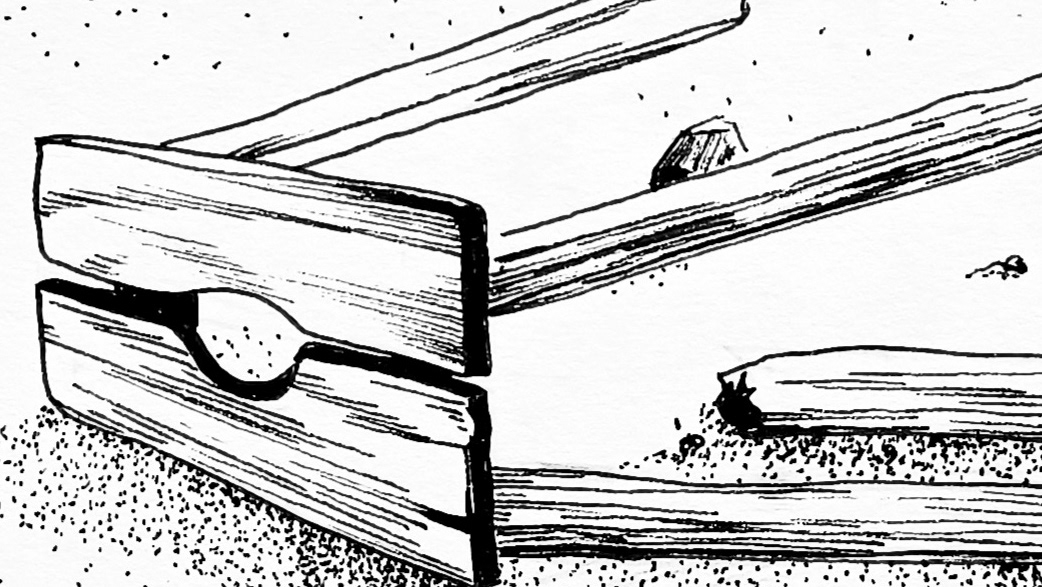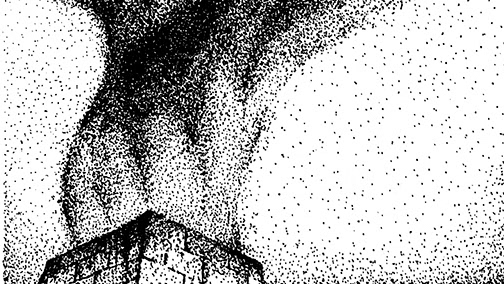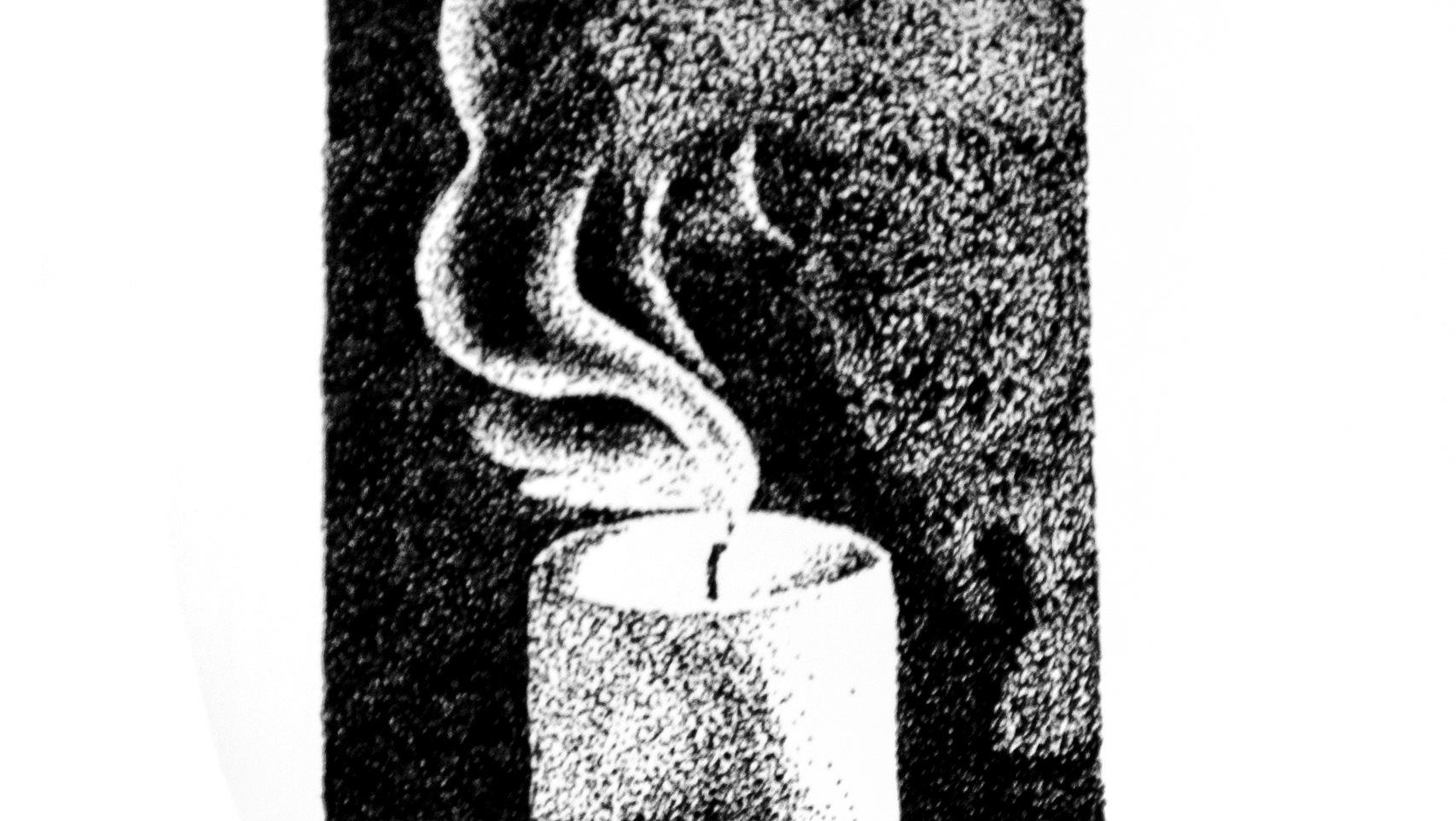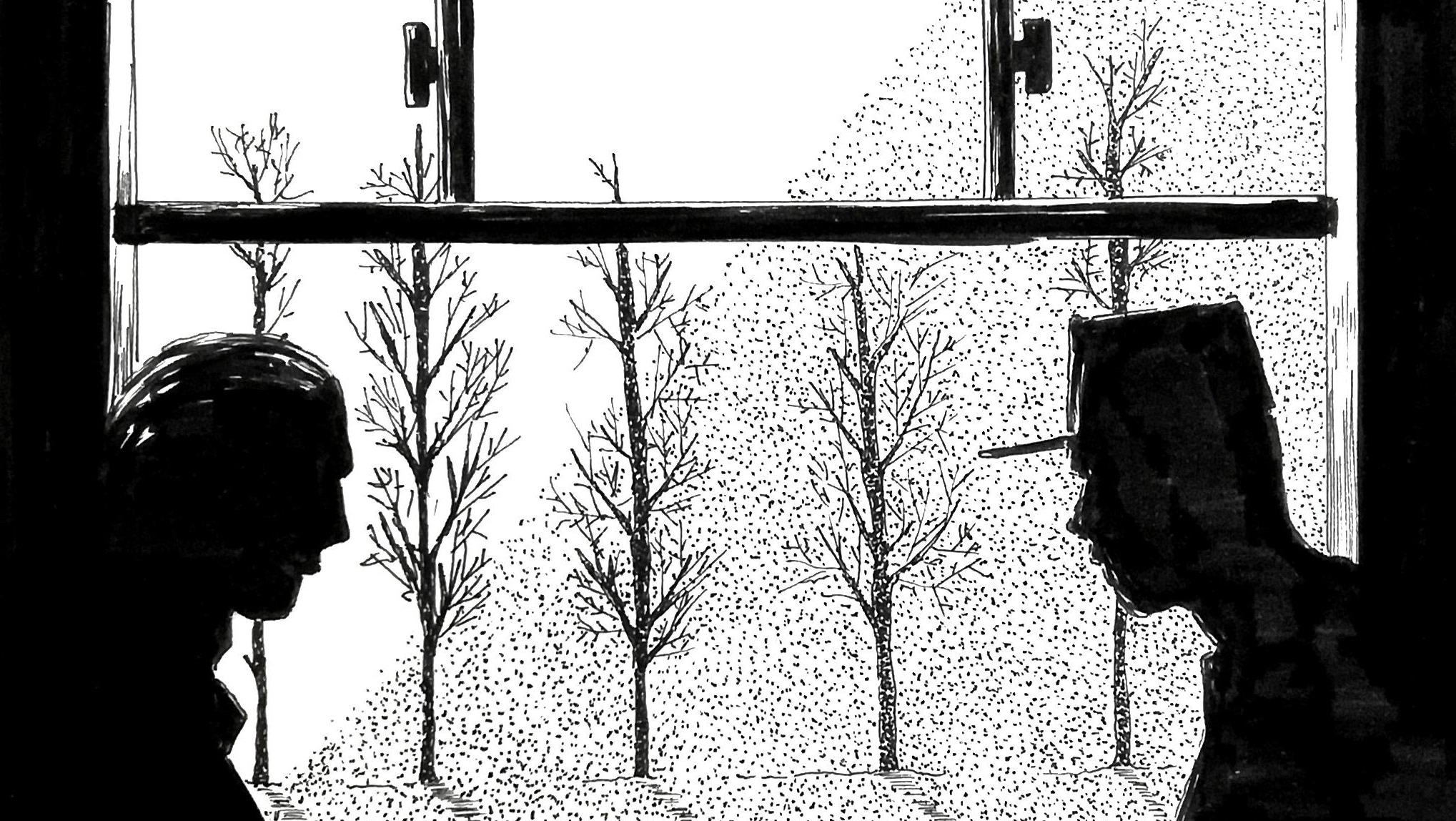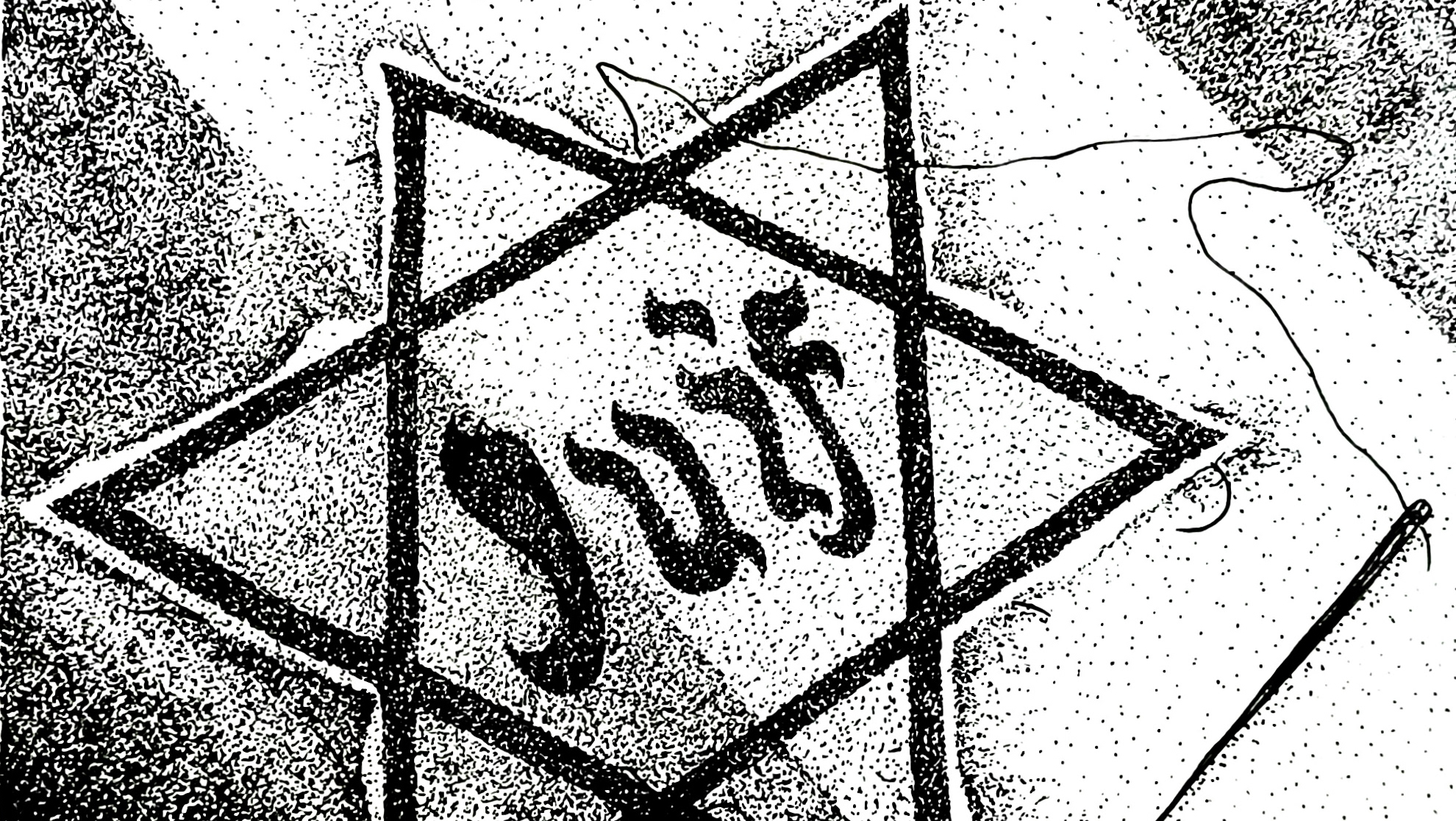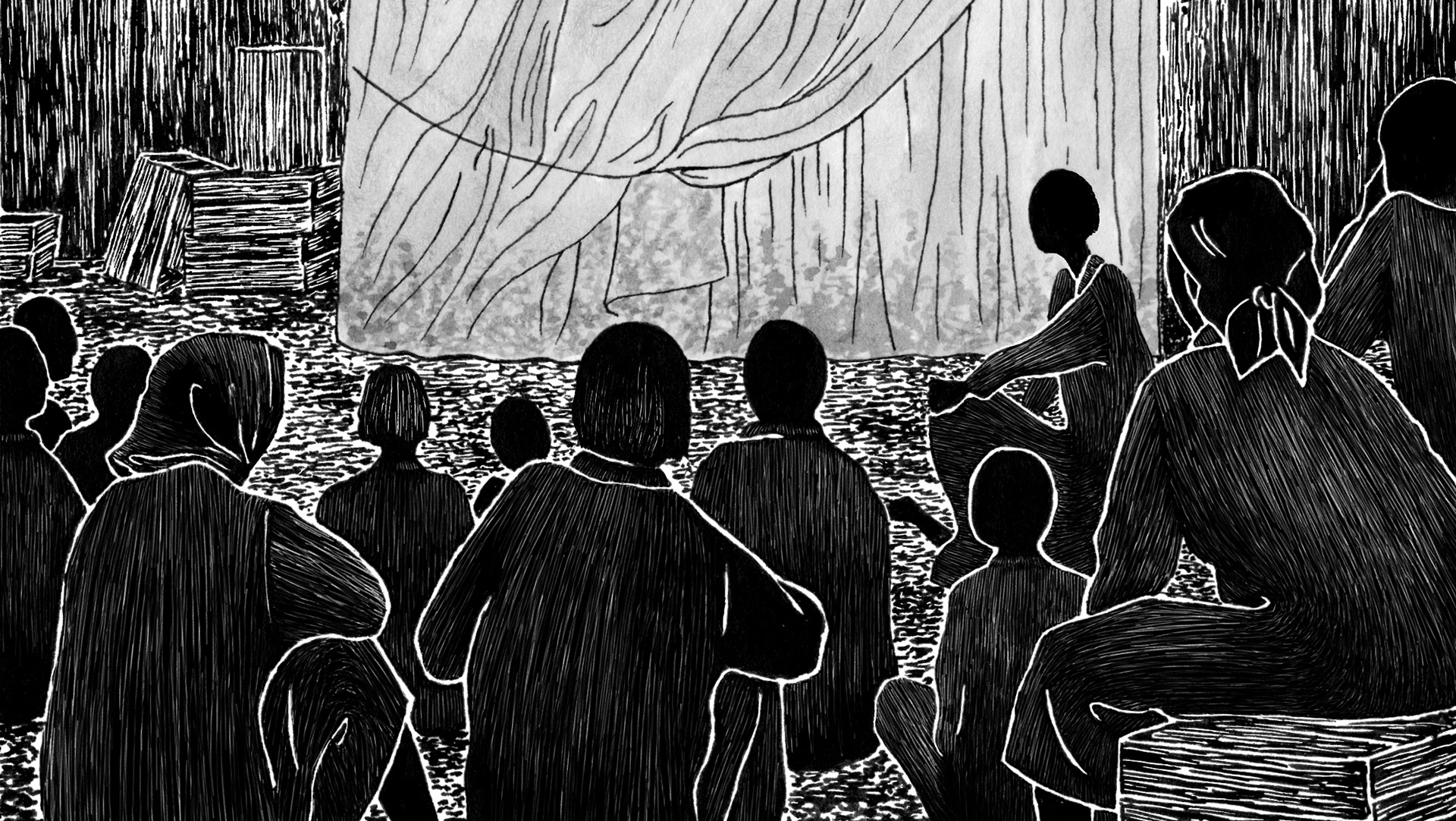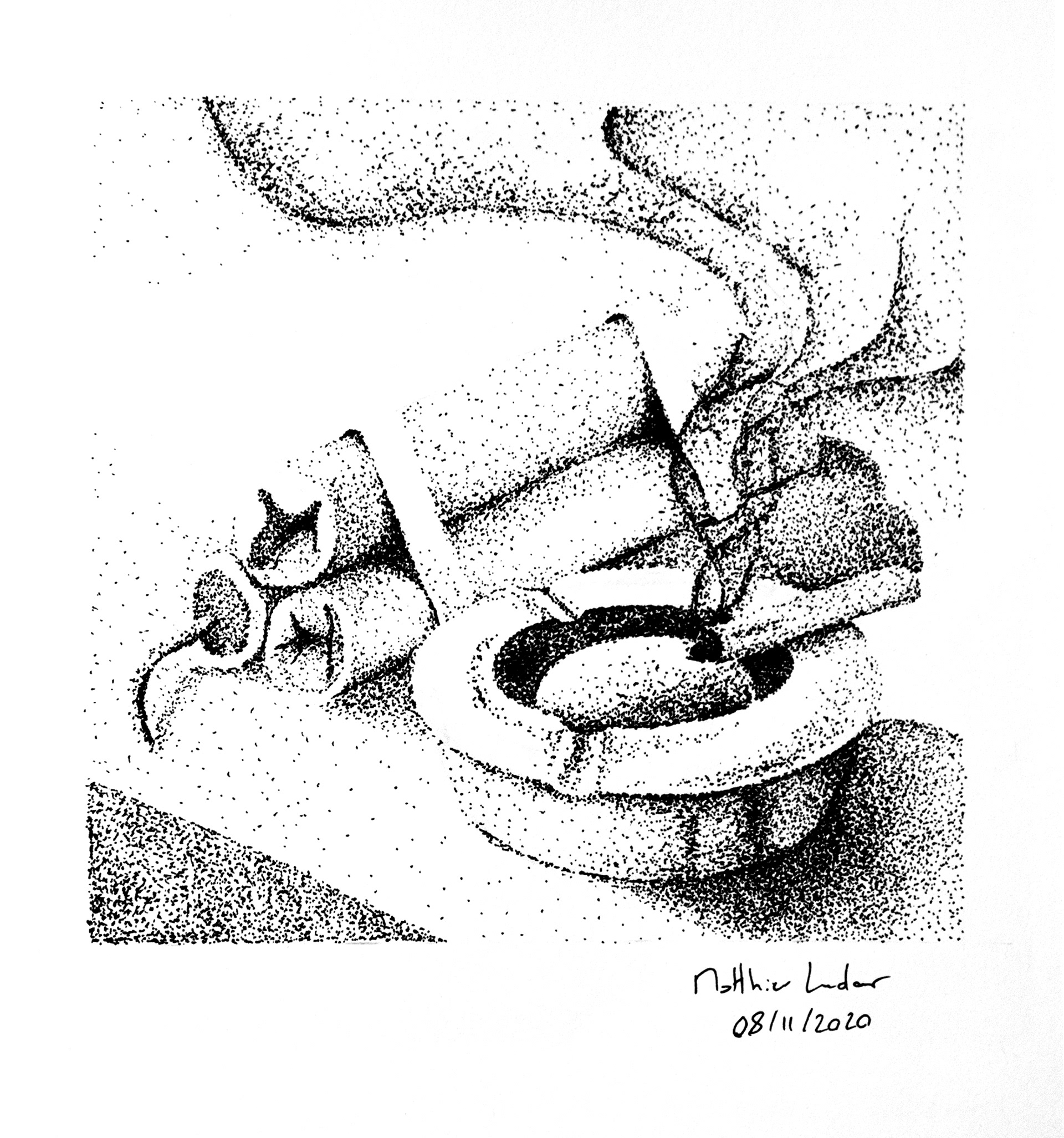
dynamite at home
400 kilos of explosives won't be enough.
Today is the 24th of January 1943. 230 women board trucks from the Royallieu camp to the Compiegne train station. The women want to be heard in the streets of the city, they want the citizen to listen. So they shout " We are french, we are political prisoners, we are being deported to Germany." If they disappear, they want to be remembered.
The 230 women now board four empty wagons of a train full of men prisoners. Since the 6th of July train of the 45000, the german soldiers made some adjustments. They blocked the openings so no one could escape from those, and if there ever was an escape, the german installed more miradors with armed soldiers on top of the wagons. No turn is too strong for a german soldier to notice anyone attempting an escape now.
The women are very organised, they start writing letters right away, seal them in a bag and throw it outside for the SNCF train workers to pick and forward. They even put enough change inside the sealed bags to buy stamps. As the night falls around the city of Metz the women take turns to warm each other up, so they can sleep in the best possible conditions.
Another day in the train passes, the cities have no meaning to anyone, they wonder if they are still in Germany or heading to another country. In Breslau, the german soldiers briefly open the doors and distribute hot water. From now on, the SS would be taking over the control of the train. All the women accept the water, except for Jeanne Alexandre, she would rather die of thirst than to accept.
On the 15th of december 1942, Maurice and Jeanne had an appointment with Suzanne Lasne. The way those meetings worked was as secretive as possible, you must write it down somewhere, then transcribe it as a code before you destroyed the original message. That way, if the police arrested you, the police would only see the secret code, they couldn't make anything from it. Yet Suzanne Lasne was arrested a few days before she could transcribe the message in her pocket, so the police knew about all the meetings she was to have in the next days.
Maurice and Jeanne arrived separately, Suzanne wasn't there, they both worried very quickly. Not quickly enough, the police surrounded them, they got arrested. When they forced their house, they discovered what the couple had been piling for a while, 400 kilos of dynamite. The police never saw such a huge amount in explosive in someone's living room. But it wasn't that much to Jeanne, actually it wasn't enough.
Maurice and Jeanne were tortured for hours. Jeanne would stay in one room and listen to her husband's torture, an agent would tell her that she only needed to give a few names to make it stop. And then, the roles would be exchanged, and Maurice was to listen to his wife being beaten. None of them said a single word, the police never knew why they stored 400 kilos of dynamite.
Back in the train, Jeanne Alexandre and the 70 people in the wagon try their best to pass the time and get along. But there isn't much to do. The most enjoyable event is to watch the landscapes from the openings.
Jeanne knows that Suzanne Lasne is in the same train as she is, only a different wagon. Poor Suzanne has not been sleeping for days, she still feels incredibly guilty for the events of the 15th of December. If only she had written the code before she headed back home, 4 other people, including Maurice and Jeanne, would still be free. Jeanne doesn't care one bit, it isn't Suzanne's fault, she and Maurice always knew getting caught was a possibility.
This is what Jeanne is thinking as she watches Germany from the train opening. 400 kilos of explosives is not enough. She should have been stockpiling far more, if she ever wanted to blow up the entire german country.
Notes
Thank you for listening to this episode of 31000/45000, the story of 2 trains of french members of the resistance. my name is Matthieu Landour Engel and this is the first episode regarding the women, the 31000.
This episode was about Jeanne Alexandre, a member of the resistance, arrested with her husband and 400 kilos of dynamite.
Jeanne and her husband Maurice were part of the FTP, a group of the french resistance, and they were arrested at the end of 1942, in a period where the resistance increased sabotages and armed attacks. Maurice Alexandre had a title of Technical supervisor, he was the one setting up explosive materials, he even invented an explosive luggage. That explains partly why 400 kilos of dynamite were stored at their place, in Saint Denis, right next to Paris.
It is quite difficult to imagine what 400 kilos of dynamite would do, I could only find a video of apparently 100 kilos of dynamite exploding. it is quite scary.
Maurice Alexandre was deported to Dachau in july 1943, he survived the camp. Jeanne unfortunately won’t.
I made an assumption regarding Jeanne Alexandre, and the 400 kilos of dynamite. I don't think she wanted to blow up the entire german country, literally, I have no evidence to back this up, it is more of a dramatic sentence. I don’t know which relation she had with Suzanne Lasne, I don’t know whether she accepted water by the german soldiers in the train or not, those are all assumptions. In her book, Charlotte Delbo mentions the 400 kilos of dynamite, and it is also mentioned on the memoire vive website, yet the website maitron doesn’t mention the 400 kilos of dynamite, so it may also not be true.
The 230 women boarded a train on the 24th of january 1943, they didn't know where they were headed. Most thought they were headed to a work camp in germany, even though a few guessed they were heading to harscher camps, but they couldn't tell for sure.
This train was the one and only train of women members of the resistance headed to Auschwitz. there were other train of women, they were all headed to the Ravensbruck camp. This train is therefore unique. Those 230 members were from all social backgrounds, yet half were from around Paris and its surroundings.
I would like to advise you a documentary, From Compiegne to Auschwitz: the 31000 convoy, by Natacha Giler. It’s a fantastic introduction to the lives of those extraordinary women.
I have been trying to find Jeanne Alexandre’s relatives, unfortunately, my research was unsuccessful. If by any chance, you know of someone related to her please let me know, I would be very pleased to get in touch and make sure the text I wrote doesn’t contain any errors.
My sources for this story are the book le convoi du 24 janvier by Charlotte Delbo. Charlotte Delbo is a massive author, she wrote an incredible series of master works, please read her if you have the chance. My sources also are red triangles in Auschwitz, by Claudine Cardon Hamet, memoire vive and the foundation for the memory of deportation website and the fantastic website auschwitz.org .
Thank you very much for listening, the next episode will be about Helene Hascoet, and the arrival of the train in Birkenau.

